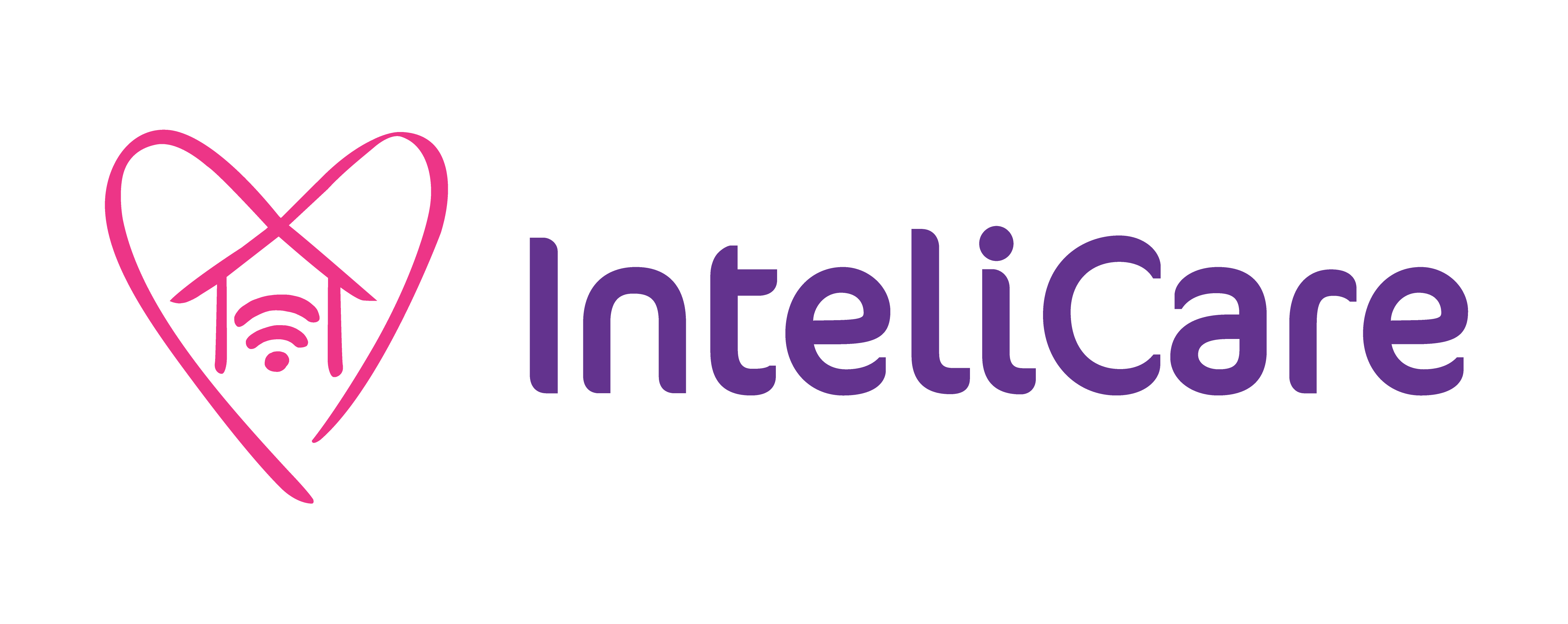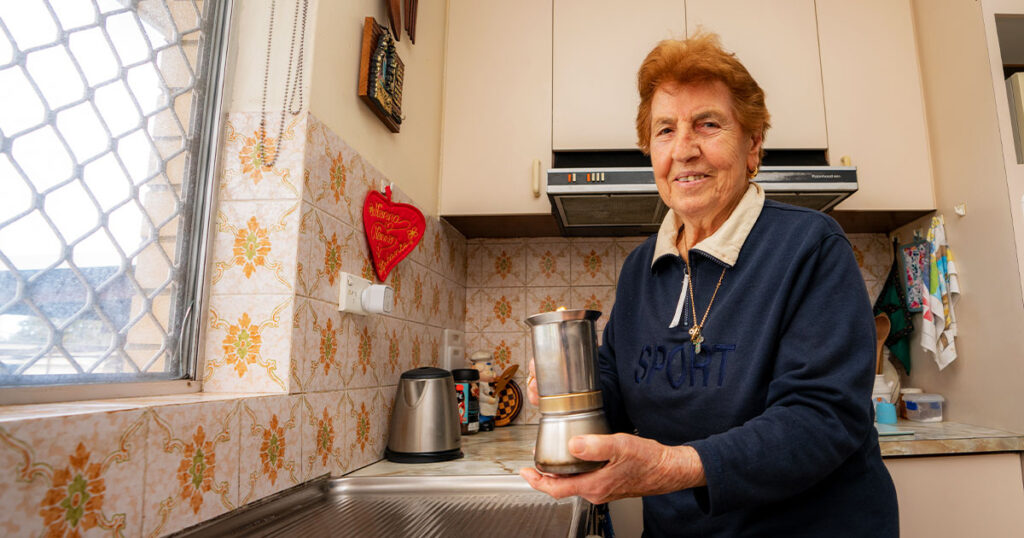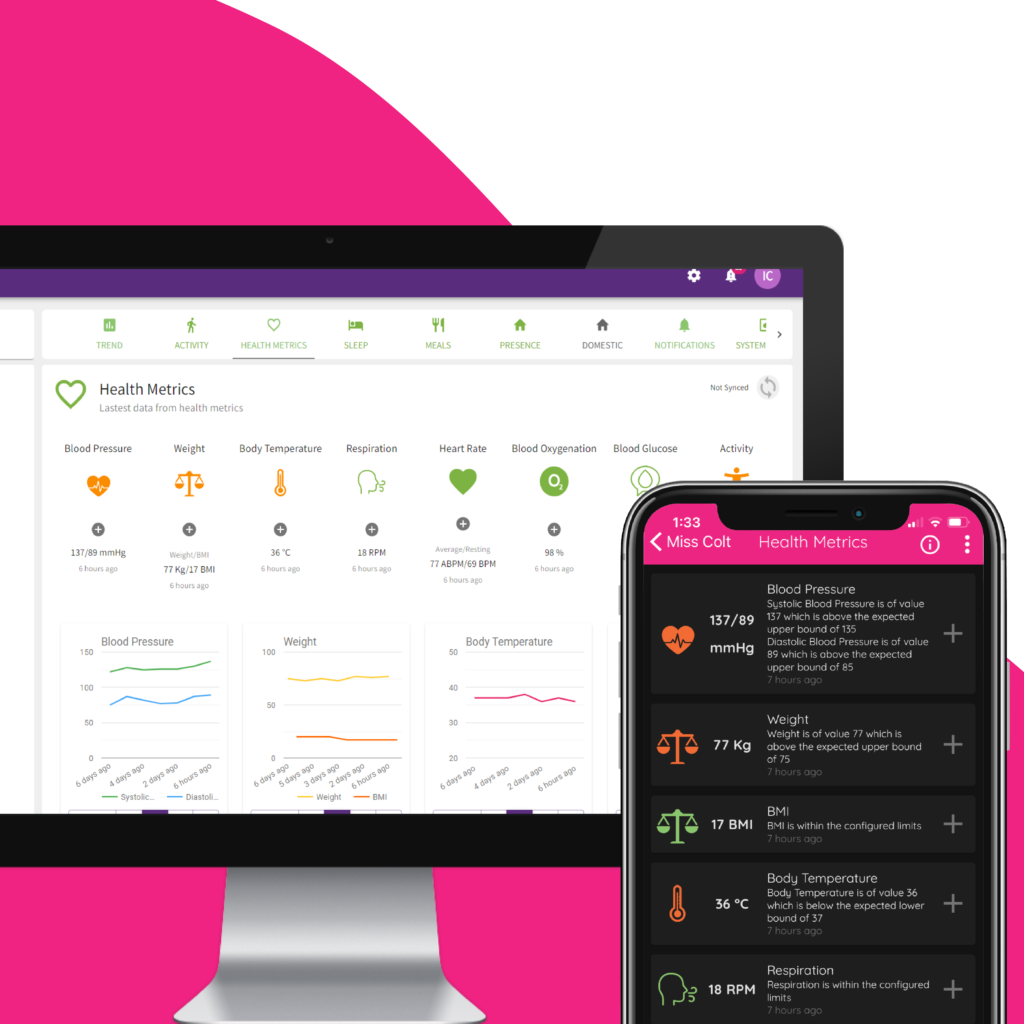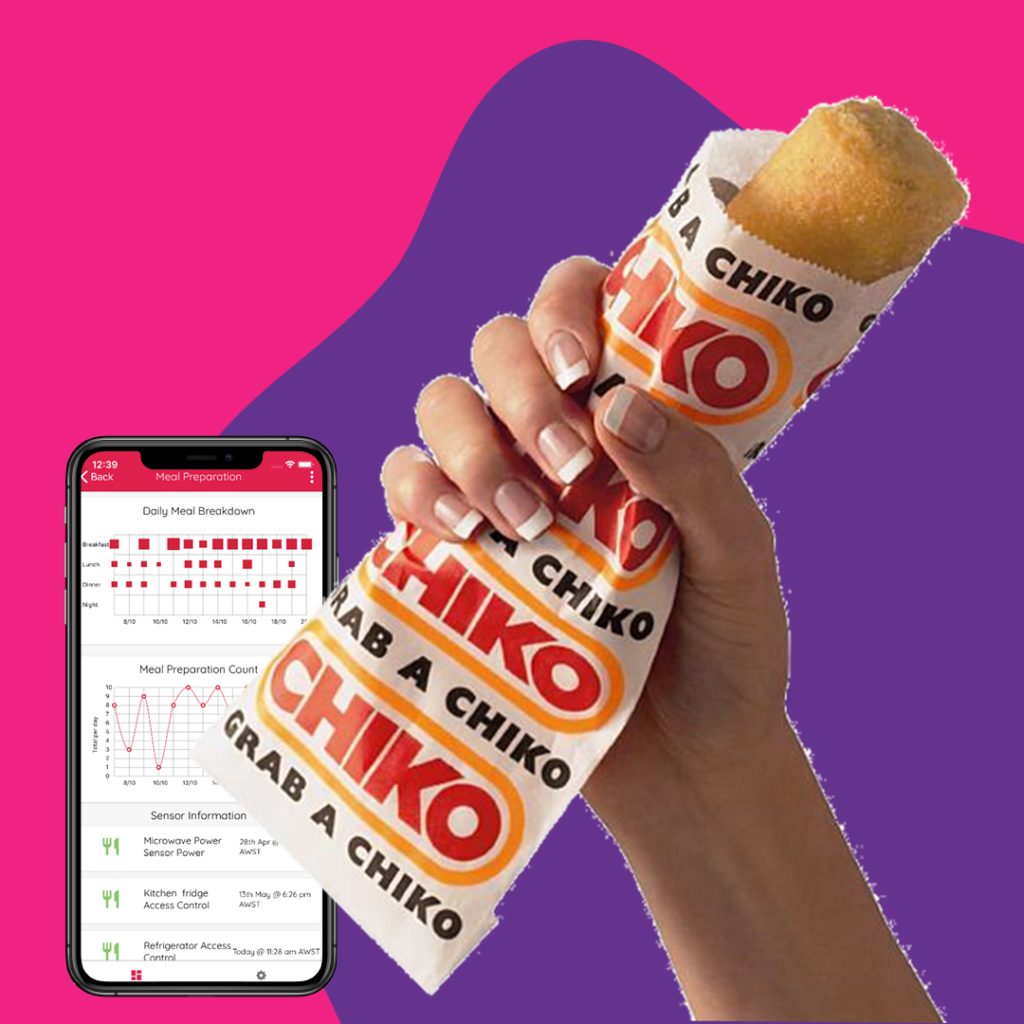With more and more older Australians choosing to age at home for as long as possible, you can’t underestimate the importance of technology aimed at keeping them safe, well and happy.
We have covered assistive technology before in relation to caring for an elderly parent during COVID restrictions, but the advantages of technology for the elderly reach well beyond a pandemic.
Before you invest in expensive equipment you think will be helpful, read our list of Top 10 assistive devices for elderly people.

1. Automatic pill dispensers
These dispensers can be customised to suit your parent’s medication schedule. They can hold several days – or weeks – of medication and some come with reminder alarms that both flash and beep. This can take the confusion out of daily medications and is particularly useful if your parent has any cognitive issues.
An alternative to automatic pill dispensers, which can be expensive, is to install a smart home sensor on the drawer or cupboard that contains the medication. This will serve the same function as the automatic pill dispenser and allow the sensor to be integrated with a home monitoring system.
2. Video doorbells
If you’re thinking of adding smart devices to your parent’s home, a video doorbell is an easy first step. Your parent will feel safer at home with a video doorbell connected to their smart device. This way, they can see who is at the door – even when they are not home. It also allows them to speak to delivery drivers and other unexpected visitors without needing to open the front door.
3. Grandpad smart device
If your parent, like many in their generation, is uncomfortable with today’s smart technology, the Grandpad smart device is a great option for them. With bigger screens and easy to navigate icons, Grandpad makes it easier for older Australians to keep in touch with loved ones. Your parent can also use it to make phone calls, browse the internet, listen to music, send an email, take photos and play brain-stimulating games.

Image: Grandpad
4. Virtual assistant
Easy-to-use tools such as Google Home and Alexa can help your aging parent stay connected to their community, set alarms for medical appoints (or you can set these for them remotely), keep up-to-date with news and stay safe in their home. Of course, they can also use them to enjoy streaming music services and check the weather.

Image: Popular Science
5. Wearables
Wearables, or fitness trackers. such as Fitbit, Garmin or Apple Watch are more than a fancy pedometer. They can track sleep patterns and heart rate, as well as set alarms to remind your parent to take medication or lock the front door before heading to bed. You can also connect them to a number of different applications, such as meal planners and recipes, GPS tracking and InteliLiving.
6. Amplified phones
Amplified phones make it easier for your ageing parent hear the phone ringing, as well as to hear the person on the other end of the line. They also feature large buttons, speakers and caller id.

Image: CapTel
7. Fire prevention
With age comes forgetfulness. And while it’s one thing to forget to take the washing off the line, it’s a whole other thing to forget to turn off the stove. You can fit your parent’s stoves or ovens with monitors that detect unattended cooking and shut off power or gas to the stove. Of course, their home should always have working smoke detectors.
8. Smart refrigerator
A smart refrigerator keeps track of its content. It can tell you or your parent if something is out of date or needs restocking. This way, you’ll know all the food in your parent’s fridge is fresh and healthy.
9. Home monitoring devices
Home monitoring systems, such as InteliLiving help you keep a virtual eye on the health and safety of your elderly parents. The software doesn’t need cameras or microphones, instead discreet sensors are placed in key areas around your loved one’s home.
You can remotely keep track of their movement, activity levels, temperature and more. Its artificial intelligence can identify trends that may show a decline in your parent’s wellbeing so you can prevent potential accidents. If something does happen – like a fall or a medical emergency – help can arrive quicker.
InteliLiving also allows for text messages and reminders about an appointment, or medications.

10. GPS tracking
While many of us are already tracking teenage children through their smartphones, this technology can also be helpful for our elderly parents. If they don’t have a smart-phone, there are a range of GPS-enabled pendants on the market.
They provide peace of mind, especially for those prone to wandering. Or to give them a means of alerting if they have a problem walking to the shops or lunch at the local café. However, the problem can be that people don’t like wearing them or forget to carry and charge them. And InteliLiving integrates with most GPS tracking devices, giving you even more comfort.
Keep your ageing parents happy and healthy with assistive technology
This is just a taste of what technology is out there to help people stay in their own homes as they age. And the good news is, a lot of it comes under a My Aged Care package, which can significantly reduce the out-of-pocket cost. If you want to learn more about home monitoring, in particular, contact us at InteliCare.





